Gaming's strangest international title changes - explained!
Perfect, now change it!
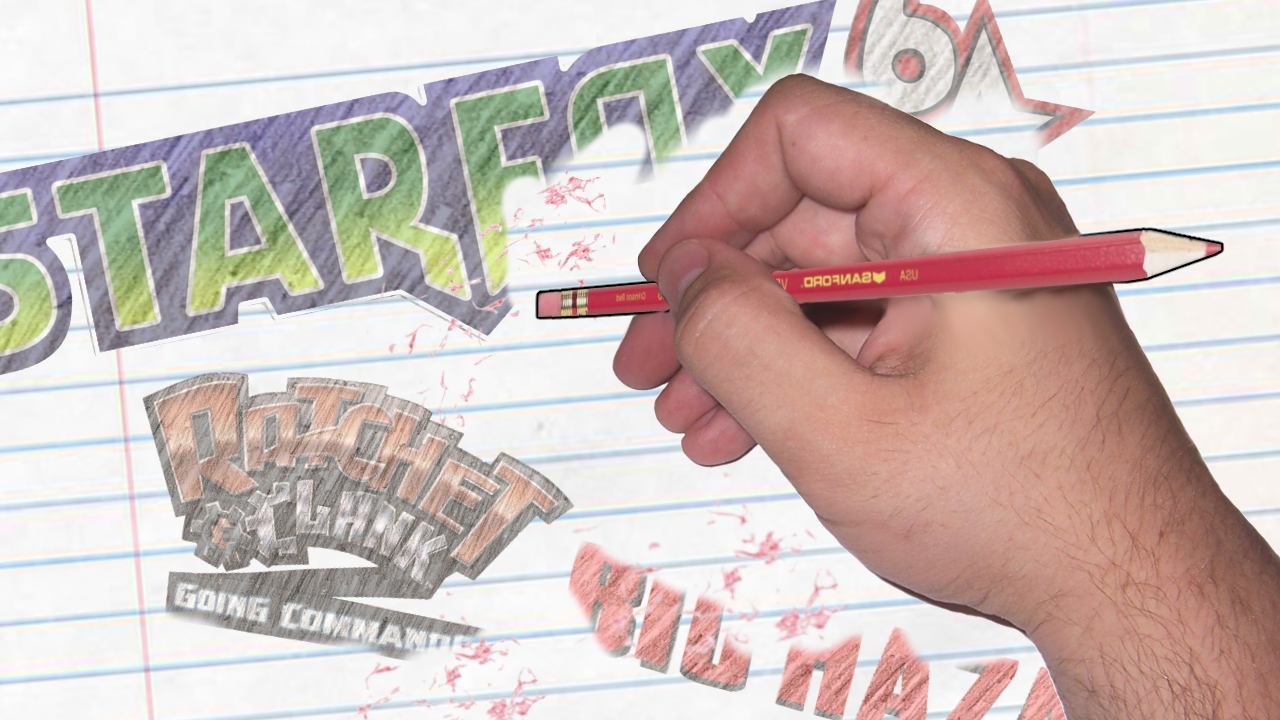
Good old language, with its myriad of pitfalls, tenses and opportunities for embarrassment. There's pernicious punctuation, strange enunciation and all manner of other stumbling blocks present to boot. It's no small wonder we ever manage to pen one. And then there are the foreign tongues to worry about, alien dialects capable of transforming our everyday words into uproariously funny or unwittingly offensive phrases. One Englishman's cigarette is an American's lifetime ban from the pride parade.
Today's big list of stuff looks at several games that underwent unusual changes abroad, switching titles in order to account for local tastes, respect copyrights, or otherwise avoid looking somehow Wrong. How did they change, and why? This article intends to find out. Let the Mega-Drive/Genesis arguments commence!
Starfox & Starfox 64 = Starwing & Lylat Wars
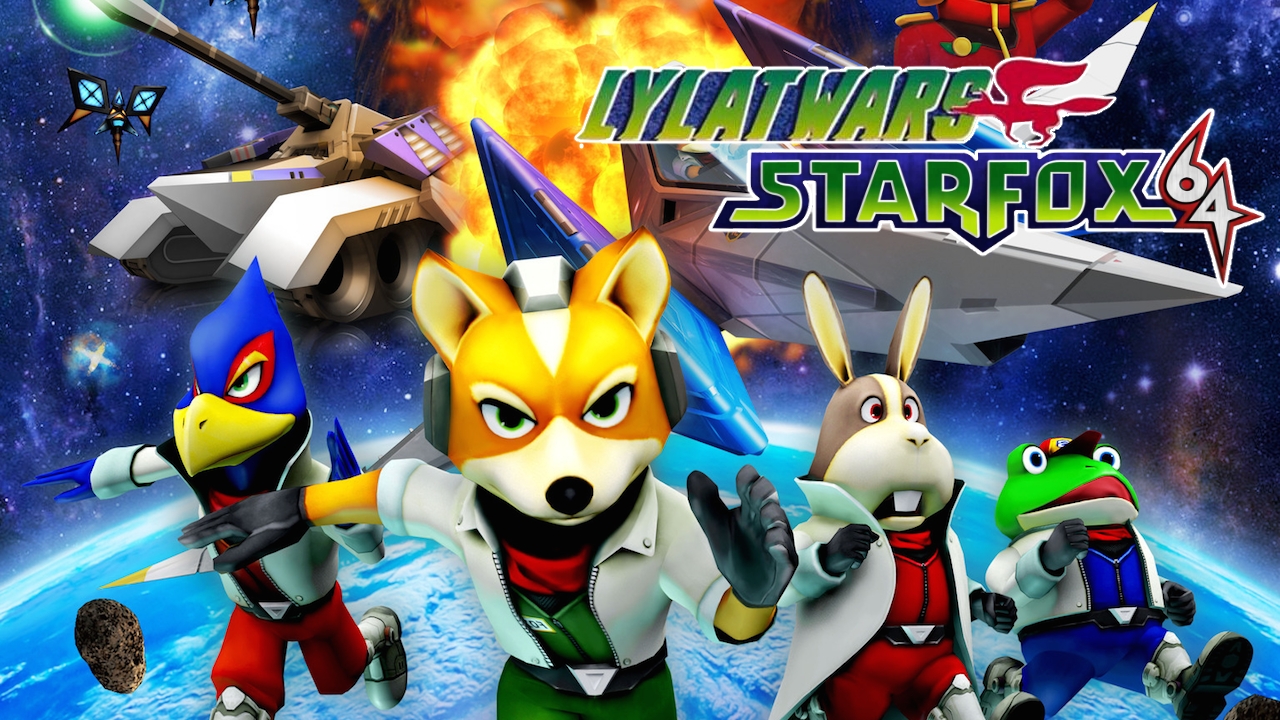
Copyright law is one unusual animal, even moreso than the flea-bitten fliers of the Star Fox universe. Plainly speaking, no patent ought to be granted that might easily be confused with another. Sounds simple enough, though in practice many companies will attempt to abuse such laws in order to hurt the competition. It's an atmosphere that can breed some overly-cautious behaviour - like spotting a tray of biscuits in the average British household, but not having them directly offered. That, in effect is what happened to Nintendo's Star Fox franchise, which underwent a pre-emptive name change in order to avoid an imaginary lawsuit.
According to developers Dylan Cuthbert and Jez San, Ninty higher-ups were so afraid of infringing upon German company StarVox - which, to be fair does sound a bit similar when read in a thick Bavarian accent - that a new European-only moniker was created. Given the obvious gap between some German firm and a game about critters manning spacecraft, Ninty would've likely won any potential dispute, though that would've also meant delaying the game in Europe. Thankfully, the situation had resolved itself by the time Star Fox Adventures dropped, its title intact, in November 2002.
Contra = Probotector
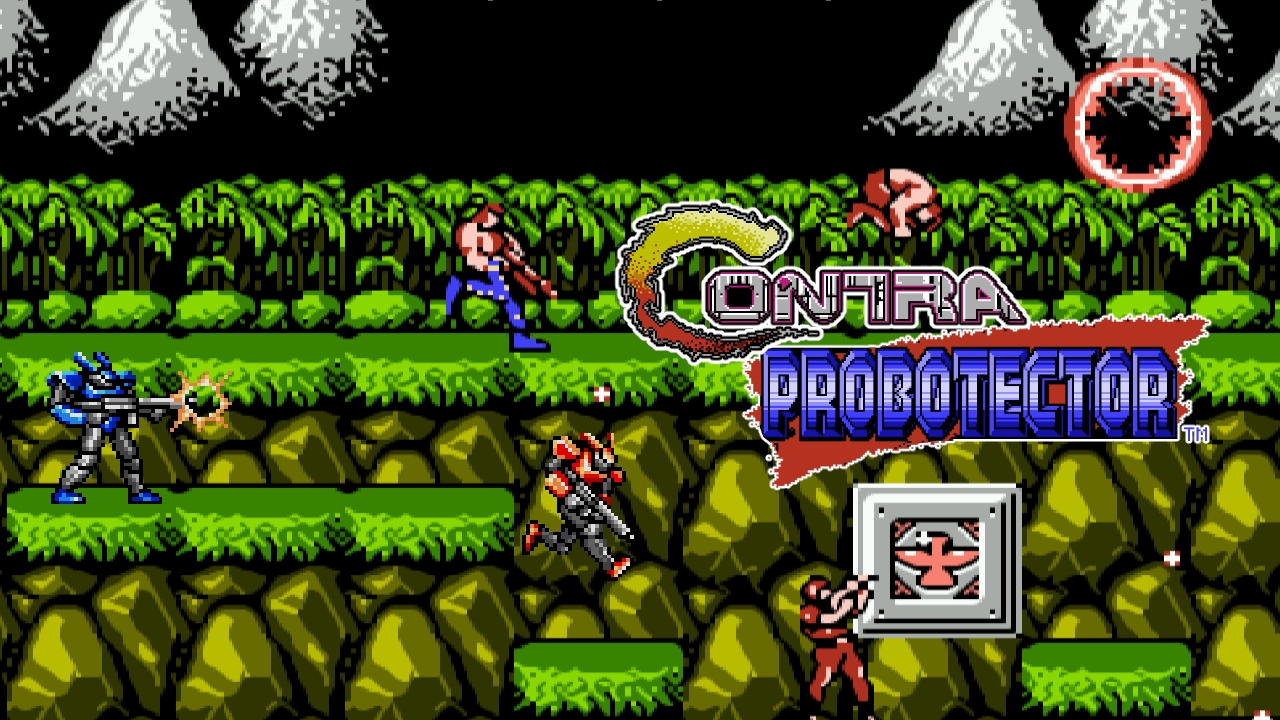
Just as a chain is only as strong as its weakest link, the entirety of the PAL region is often undone by its most squeamish state. Germany. Yes that Germany - a nation founded upon strong stomachs, manly 'tasches, hefty meats and fine ales - somehow wound up becoming the region's resident killjoy. With its child-coddling protection laws, the country banned many early games outright, otherwise forcing publishers to alter their content in order to pass muster. Sadly, given the exorbitant costs involved, many publishers werent about to release a German-only experience and instead chose to burden the rest of Europe with the same neutered games. It wouldn't be the first time Germany had held the whole continent to ransom, of course it was the '82 Eurovision Song Contest all over again.
And that's how we ended up with Probotector, a robotized re-skin that appeared some two-and-a-half years after Contra. Non NES-players, meanwhile, could content themselves withGryzor? Yep, that was the renamed version of Contra released for the C64, Amstrad CPC and ZX Spectrum. Konami's reasoning? That Europeans were less aware of the whole 'Iran-Contra affair' from which the game took its name. Gryzor, on the other hand... Well everyone knows what that is, right?...
Teenage Mutant Ninja Turtles = Teenage Mutant Hero Turtles
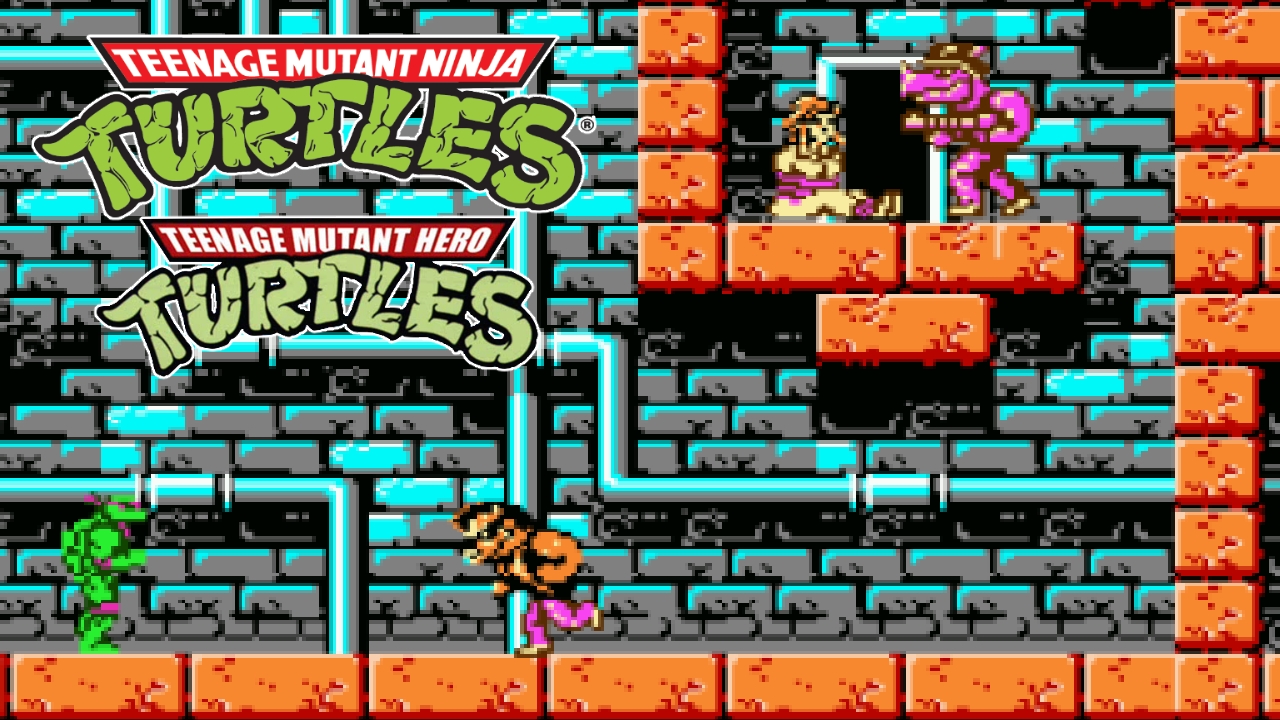
More moral outrage here, this time predicated on the belief that the popular karate fad of the late 1980s would inevitably lead to wanton child-on-child slaughter. Everything from high kicks to nunchucks was suddenly too cool for school, and of course our crusty old parents couldn't have that. They needed us to look after them in their old age, and by gum we weren't going to do it with a shuriken lodged in the bonce.
Weekly digests, tales from the communities you love, and more
Perhaps the single most popular property to be affected was the Teenage Mutant Ninja Turtles. Objectors baulked at the 'violent connotations' contained within the word 'ninja', resulting in the wholesale rebranding of the franchise - as well as the exclusion of certain character-specific weapons - within Europe. That's how TMNT became 'TMHT', with even the brand's earliest video games altered to match. Mercifully, the success of the first TMNT movie, which appeared unaltered worldwide, helped to chip away at much of the unnecessary censorship.
Pac-Man = Puck-Man
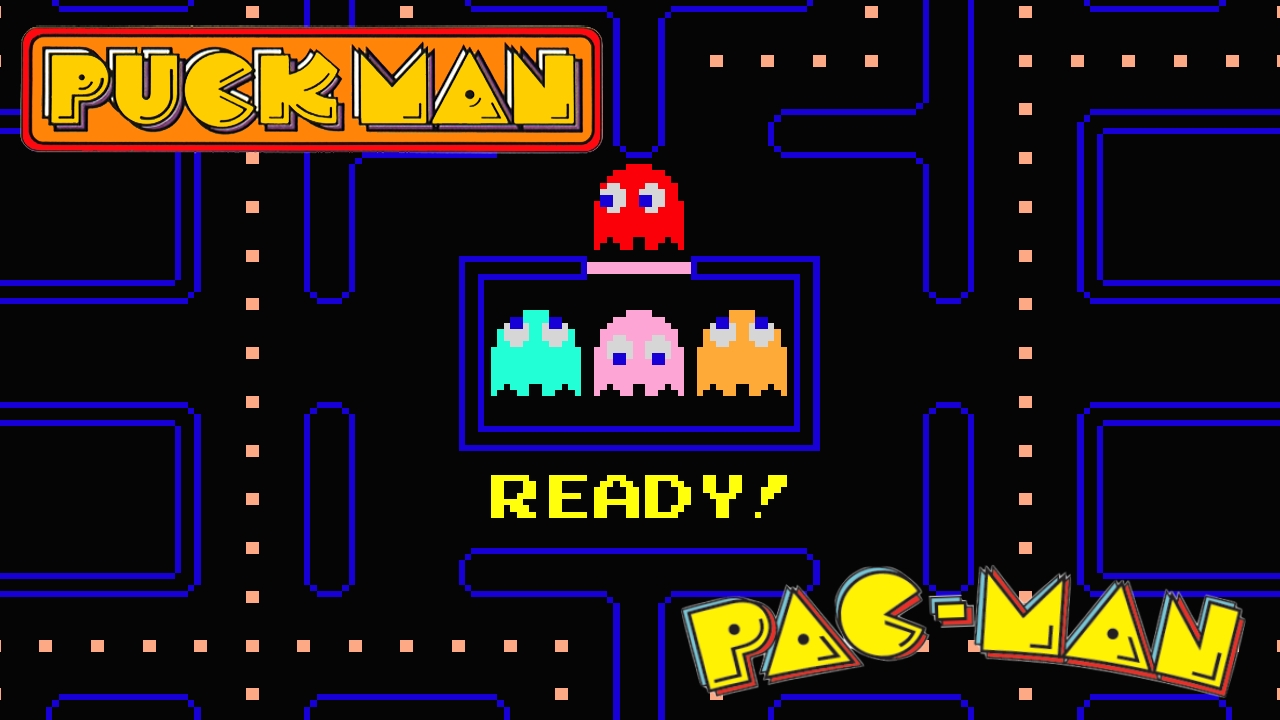
As I've previously mentioned here,Pac-Man was initially named 'Puck-Man', a reference to the titular character's hockey puck-like design (further influences include the shape of a slice-less pizza, the word 'paku' - an onomatopoeic phrase describing the sound of eating - and a deformation of the Japanese character for mouth, known as a 'kuchi'). Western publisher Midway decided to change the name for fear of vandals scratching out part of the letter P, thereby creating 'Fuck-Man' cabinets. Oh, the lurid joys of youth
Bully = Canis Canem Edit
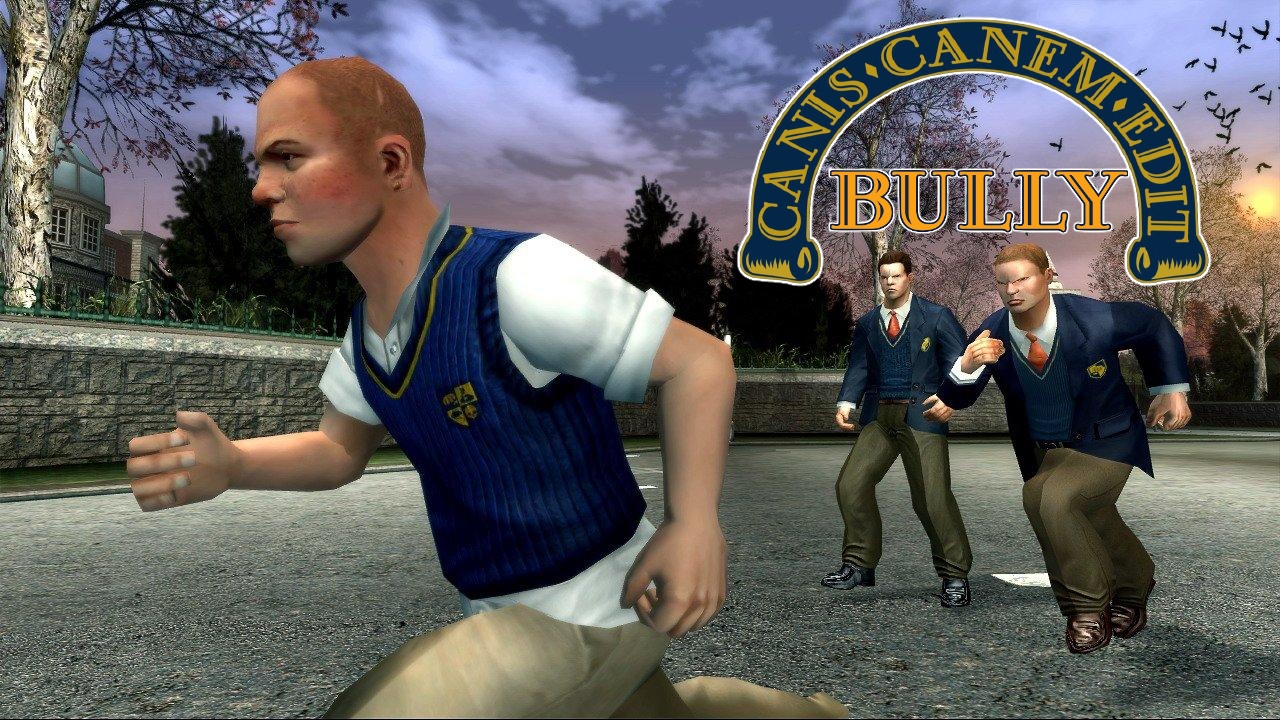
Another name I've discussed, 'Canis Canem Edit' came about due to pressure from UK parents groups. Protestors mistakenly assumed that the game, then-named Bully, would encourage players to engage in hazing, harassment and other forms of juvenile delinquency. That, in a nutshell is how most of Europe wound up playing Canis Canem Edit, Latin for 'dog eat dog' - and no I don't know why they didn't just stick with the English version either. Still, it's a reasonable enough description of the game's popularity-driven, clique-ridden setting. Hell, it's even on the in-game school's logo.
Almost as if to prove the point that moral panics are like teenaged fads for PTA members, said outrage had all but disappeared by the time Bully: Scholarship Edition appeared, unaltered, just two years later.
Resident Evil = Biohazard
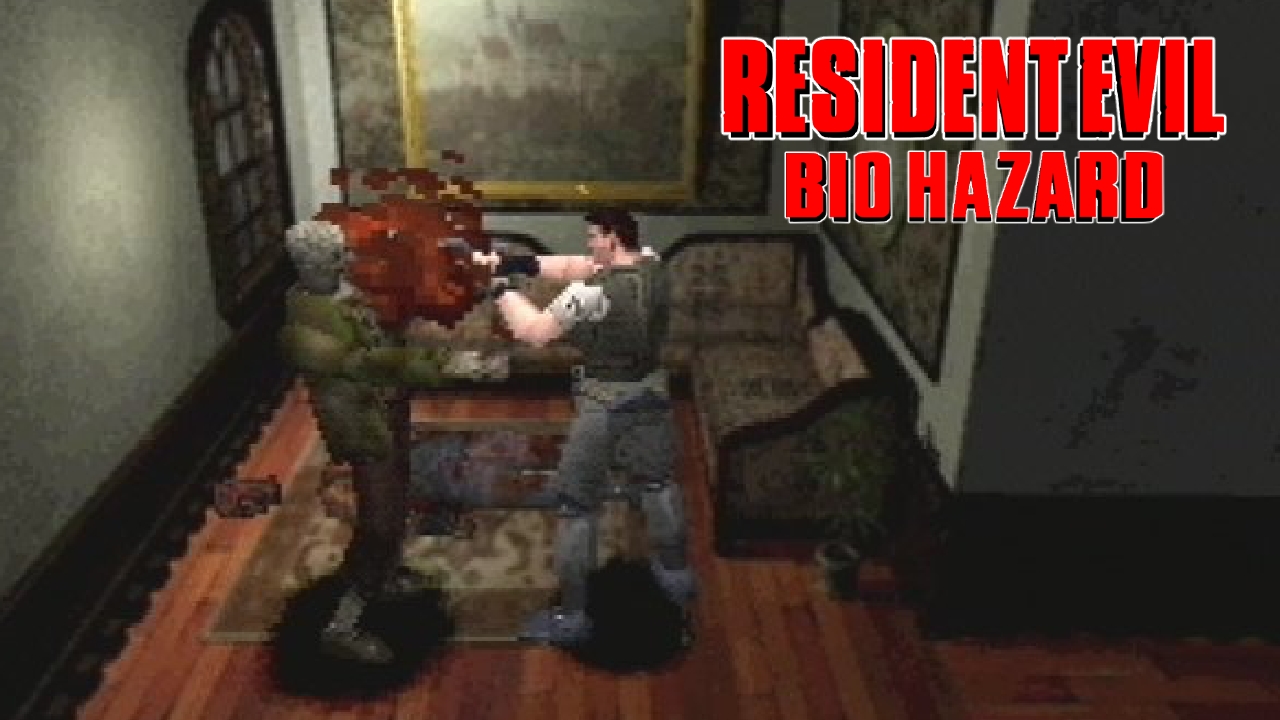
Alrighty, one last mention from the 'Great games, what does it mean?' article. *Ehem* You might be forgiven for thinking that Resi's name was merely another in a long line of obtuse Japanese translations. Not so, as it turns out. Japan already knows the franchise by an English name - that being 'Biohazard', a title that Capcom had originally intended to stick with in the West.
Unbeknownst to the House of Hadoken, however, the name had already been copyrighted, wasted on an entirely forgettable DOS title. Capcom US was soon charged with conjuring up a replacement, and held an in-house competition to select a suitable candidate. The eventual winner, 'Resident Evil', paid homage to influential '89 horror hit Sweet Home, which features the memorably mangled line 'welcome to the home of residing evil'.
Pushmo = Pullblox
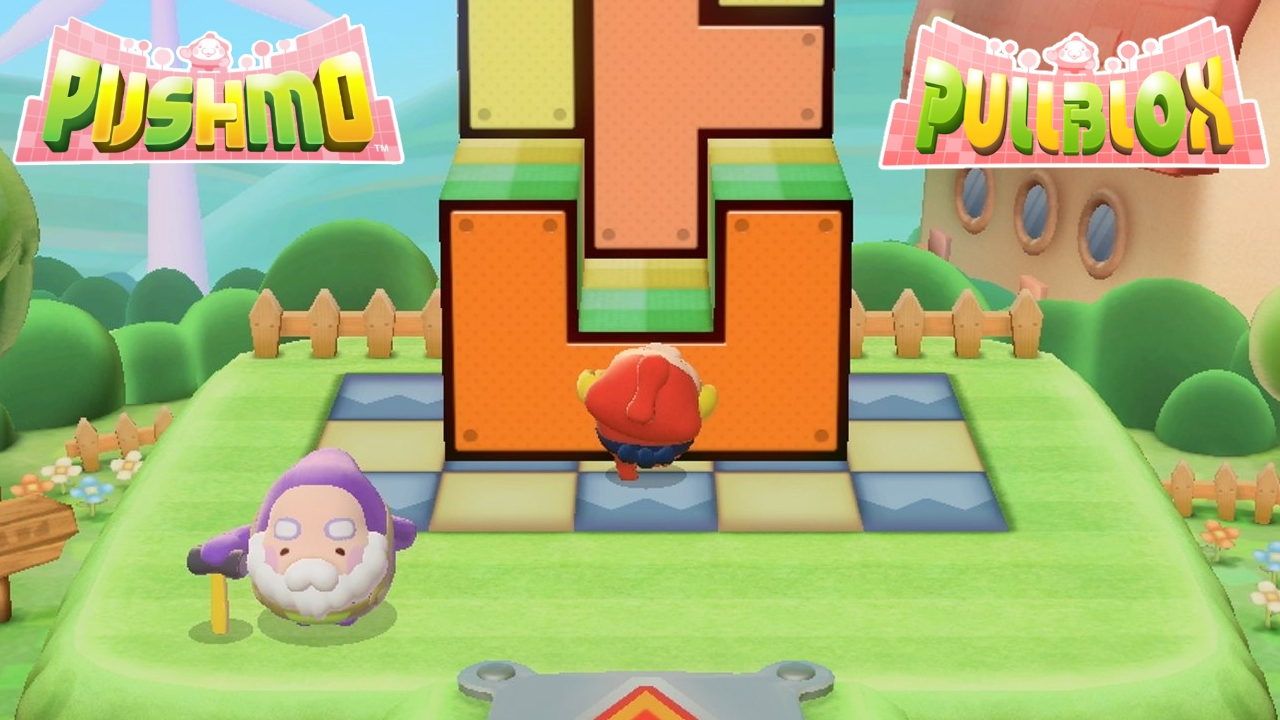
Pushmo players aren't the only ones having trouble deciding whether to push or pull - publisher Nintendo is too. Released in Japan as Hikuosu, or 'Pull Push', Ninty renamed the game 'Pushmo' in the United States, while European players were treated to the otherwise unaltered 'Pullblox'. The reasoning behind the change is unclear, though it's rumoured that the term 'pushmo' sounds similar to a phrase in one of the (many) European languages, meaning 'to smoke' or to encourage others to do so. Hardly the most savoury of messages for a video game aimed at kids.
As often tends to happen with these sorts of switch-ups, what was once an elegant solution quickly turned thorny, with follow-ups Crashmo and Stretchmo going on to become Fallblox and Fullblox, respectively. Way to differentiate, Nintendo.
Mortal Kombat: Deception = Mortal Kombat: Mystification
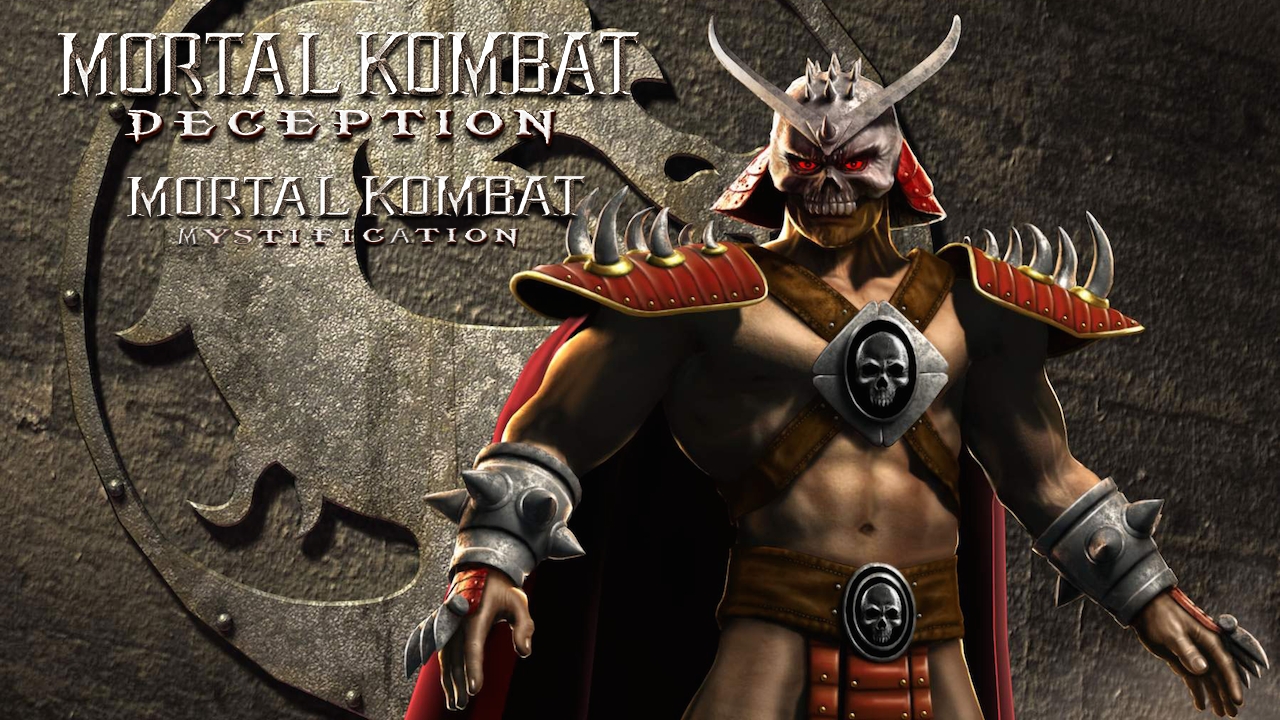
The 6th major Mortal Kombat game had to be renamed specifically for France. The reason? Its subtitle, 'Deception', is roughly equivalent to the word 'disappointment' in French, an unfortunate portent that thankfully didn't bear any fruit, as the game went on to score strong overall reviews. Funnily enough, the word 'mystification' can be interpreted in English as 'hoax' or 'spoof', indicating that the team behind the game was intent on making light of the situation.
Fatal Frame = Project Zero
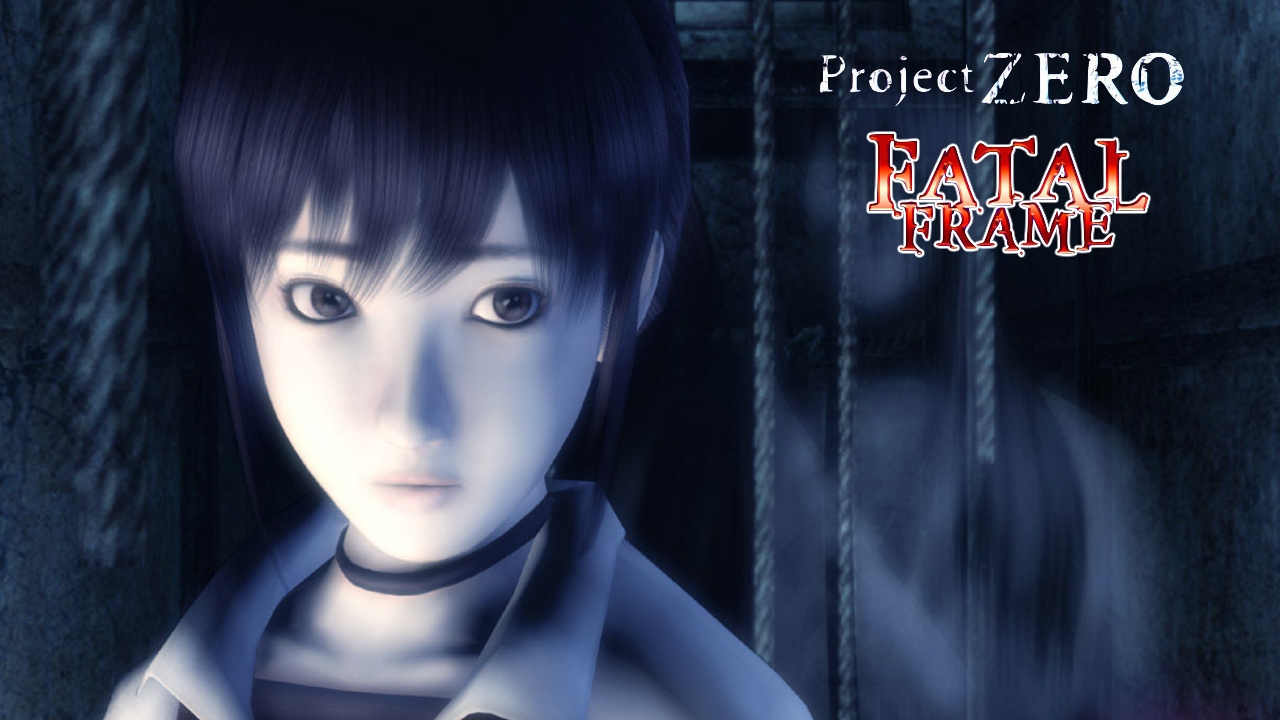
More language-specific shenanigans here. The Japanese version of Fatal Frame is known simply as 'Zero', and while that moniker may not sound like it bears relation to the events of the game, the truth of the title lies deeper. When translated, the word zero becomes 'rei', which may also be taken to mean 'spirit' or 'soul'. In addition the Japanese word for ghost is 'yuurei' or 'faint spirit', meaning that the game's domestic title is actually something of a pun. That's the Zero bit worked out, but what about 'Project'?
Well, the team responsible for creating the game was also known as Project Zero (part of the wider Tecmo group). It's possible, however unlikely, that the game's European title came about due to a botched translation, taking the dev's name as that of the video game itself.
Ratchet & Clank Series = Various
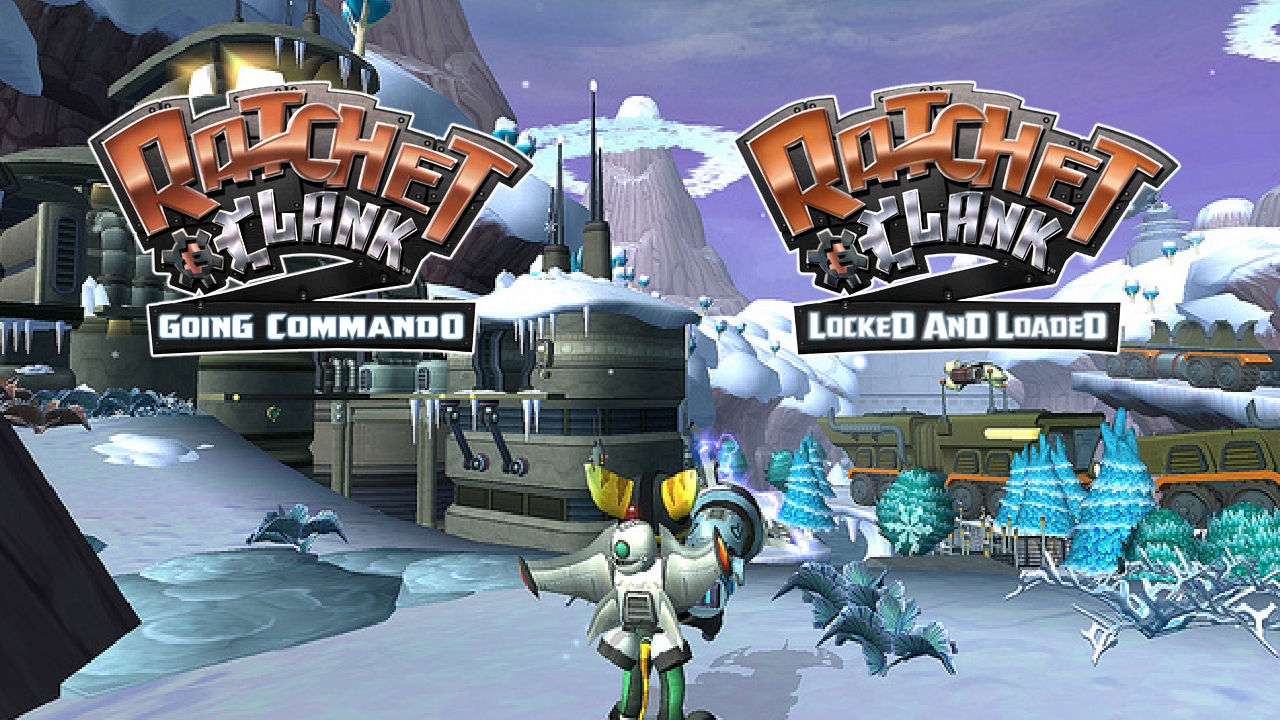
Where Conker's Bad Fur Day openly flaunted its foul-mouthed antics, the team behind the Ratchet & Clank series opted for a far more subtle approach. So subtle in fact that the games themselves remain almost completely clear of smut, swearing or otherwise bawdy humour. So, how exactly did those dirty-minded Insomniacs get their kicks? Why, through the subtitles, of course! Sadly it seems that the European ratings boards were wise to their schemes, forcing the studio to rename a whole slew of sequels. While fans in the US were treated to titles like Ratchet & Clank: Going Commando, Up Your Arsenal and Full Frontal Assault, Europe received such bland, cookie cutter replacements as 'R&C 3' and 'Q Force'.
Of course, all good things must come to an end, with more recent releases failing to maintain the tradition, though not for lack of trying. 2009's A Crack in Time just about managed the feat, but only after Sony had already vetoed the working title of 'Clock Blockers'. Likewise 2013's Into the Nexus was once known as 'Into the Nether Regions', while All 4 One won out over purported alternates '4 Play', 'Multiple Organisms' and 'Bros B4 Foes'. I guess someone finally did think of the children the bastards.
Bionic Commando = Hitler's Resurrection: Top Secret
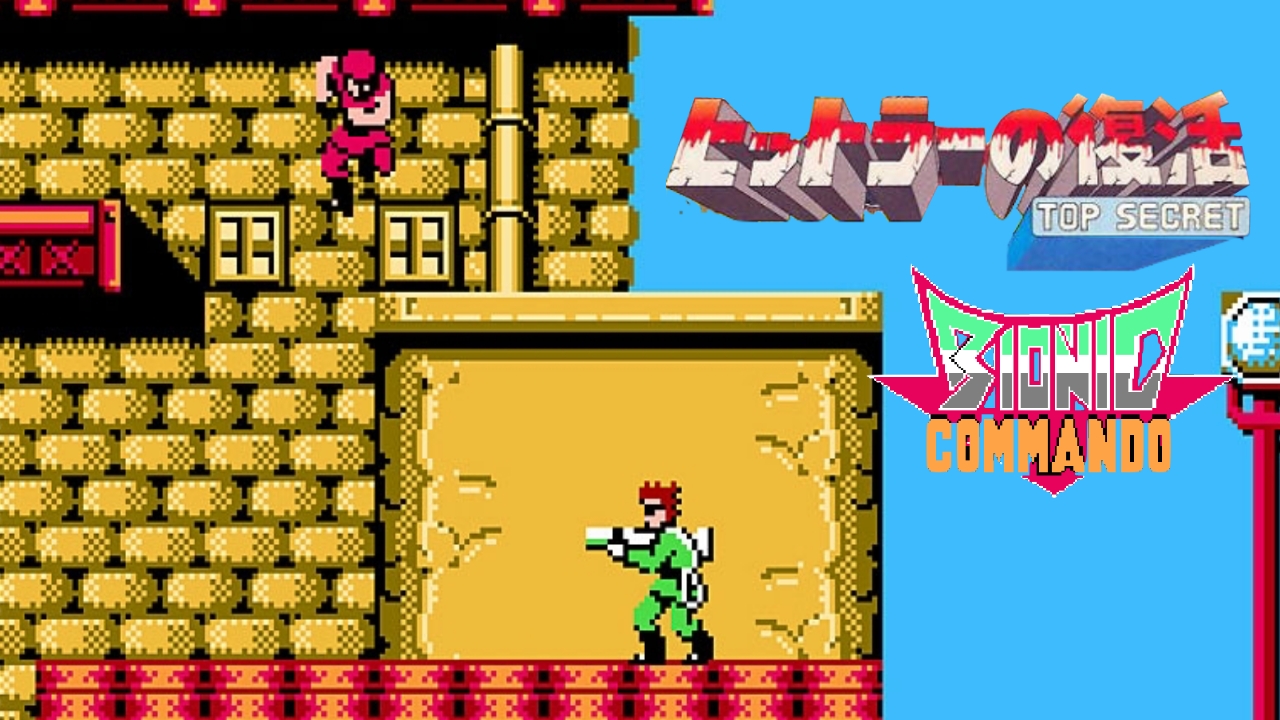
Given some of the other names on this list, you might be forgiven for thinking that Bionic Commando bore an interesting, if only slightly different name outside of the United States. Something like 'Grapple Gunner' or 'Bicep Wife' (three cheers for the abominably bad reboot!). Well, you'd be wrong. In its homeland of Japan, Bionic Commando is actually known as Hitler's Resurrection: Top Secret.
In it you battle against wave-after-wave of heartless Neo-Nazis, as they attempt to resurrect that one bloke who ruined toothbrush moustaches for everyone. The game's western release removed all trace of this Nazi iconography and renamed the big bad as one 'Master-D'. Such changes likely came about due to the modern-day Germany's ban on displays of Nazi icons, such as the swastika, which was displayed prominently throughout the Japanese cut of the game. On the plus side, anyone bad enough to beat the game was still treated to the classic animation of Hitler's head blowing up. Huzzah!
Final Fantasy: Adventure = Mystic Quest
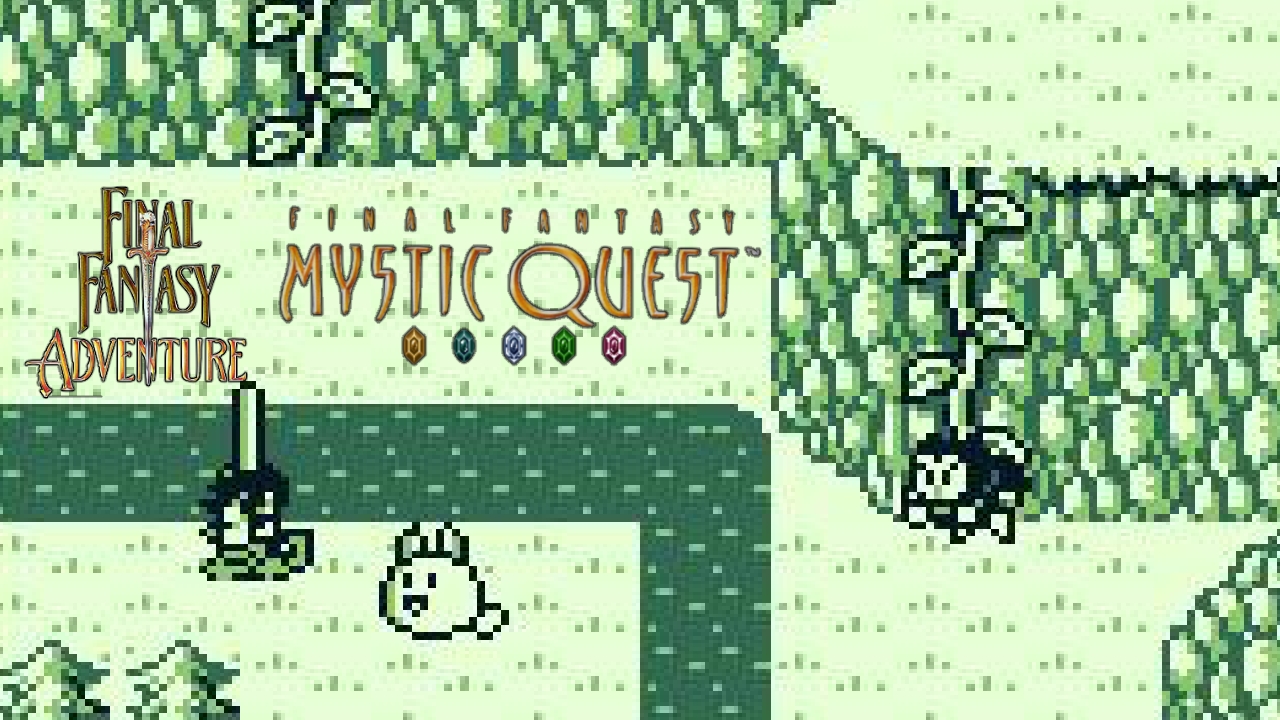
The early history of the Final Fantasy series is positively brimming with barmy and ill-considered name changes. No sooner had some of these games hit store shelves than they were already causing headaches for the next set of games inching along the conveyor belt. As the company's most successful series, the Final Fantasy branding soon came to cover a whole host of otherwise unconnected titles, including what would later become both the Mana and SaGa franchises.
The former began life as Final Fantasy Adventure, or 'Mystic Quest' in Europe - not to be confused with later SNES title Final Fantasy Mystic Quest (or 'Mystic Quest Legend' in Europe). I've gone cross-eyed just typing that... The game was originally going to be known as 'Gemma Knights', before being granted the name Final Fantasy Adventure - presumably to boost sales. It remains unclear why Europe received the game as Mystic Quest, especially as it appeared over two years later in the region, just as the aforementioned Final Fantasy Mystic Quest was appearing on home consoles.
Quick Fix
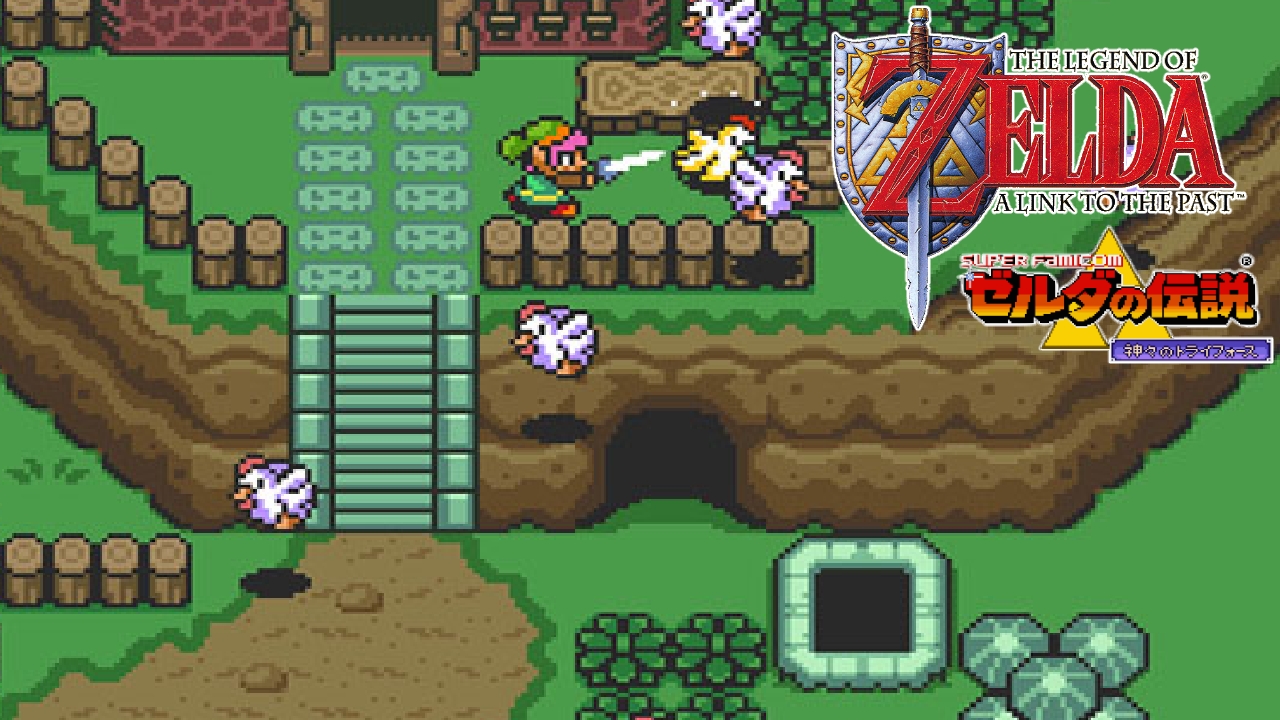
The Legend of Zelda: A Link to the Past = The Legend of Zelda: Triforce of the Gods (Japan) - Nintendo of America chose to remove all religious aspects from the game, probably to avoid causing offense. Priests became wizards, churches became sanctuaries and Triforce of the Gods became A Link to the Past. Interestingly, A Link Between Worlds is known as 'Triforce of the Gods 2' in Japan, all-but confirming their shared setting.
Jet Set Radio = Jet Grind Radio (US) - Changed to avoid confusion/potential legal disputes with US band Jet Set Satellite.
Tomba! = Tombi! (Europe) - The word Tomba is Italian for 'grave' - not good if you're marketing a colourful jaunt to kids.
Fahrenheit = Indigo Prophecy (US) - Changed to avoid confusion with the then-current documentary film Fahrenheit 9/11.
Dark Chronicle = Dark Cloud 2 (US) - Likely changed to increase sales in the US. Dark Chronicle bears few similarities to the original game, aside from the occasional cameo appearance from a returning character.
Potzol's Puzzle = Ketzal's Corridors (US) - Er...
Sly Cooper & the Thievius Raccoonus = Sly Raccoon (Europe) - Because Europe won't stand any bastardisation of its beloved ancient Latin? Look, don't know.
Spotted any more unusual name changes? Let me know in the comments below.



